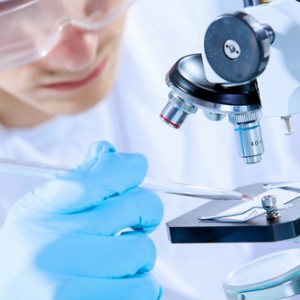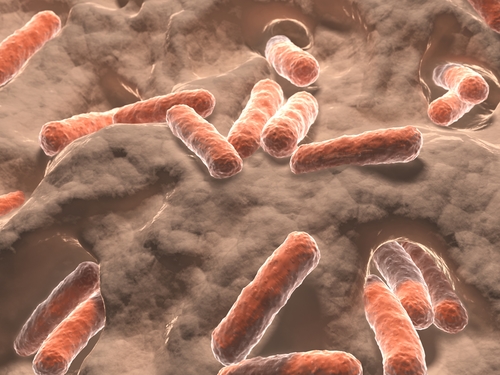 A team of researchers recently found that a particular protein can reverse intestinal fibrosis through inhibition of collagen synthesis.
A team of researchers recently found that a particular protein can reverse intestinal fibrosis through inhibition of collagen synthesis.
The study, titled “Antifibrogenic Effects of the Antimicrobial Peptide Cathelicidin in Murine Colitis-Associated Fibrosis,” was published in the first issue of American Gastroenterological Association peer-reviewed journal Cellular and Molecular Gastroenterology and Hepatology.
Inflammatory bowel disease (IBD), including Crohn’s disease (CD) and ulcerative colitis, is manifested by chronic inflammation of the gastrointestinal tract with significant morbidity and at times life-threatening complications. The mechanisms by which intestinal fibrosis occurs are poorly understood. However, these patients often present high levels of the transforming growth factor-β1 (TGF-β1) in the mucosa overlying CD strictures compared with nonstrictured gut.
Nearly 75 percent of patients with CD undergo surgery due to intestinal fibrosis. Recently, studies found that treatments with anti–tumor necrosis factor α (anti-TNFα) monoclonal antibodies can reduce inflammation but may not prevent or reverse fibrosis in CD patients.
Cathelicidin (LL-37 in human and mCRAMP in mice) are antimicrobial proteins with anti-inflammatory features. LL-37 also suppresses collagen synthesis, an important fibrotic response, in dermal fibroblasts.
In this regard, Hon Wai Koon and colleagues examined if cathelicidin was able to prevent collagen synthesis and fibrosis in intestinal disease. Using mice models of Crohn’s disease and human colonic fibroblasts (the cells that have as function to synthesize collagen in scars and strictures), they conducted the experiment. They administrated trinitrobenzenesulfonic acid to induce chronic colitis and fibrosis for 6-7 weeks. After three weeks, researchers observed that introducing the cathelicidin protein through the colon, limited weight loss and features of the disease. Furthermore, cathelicidin was able to reduce the production of pro-inflammatory cytokines. Additionally, the researchers observed that cathelicidin was able to reduce the production of mRNA for collagen synthesis and miscroscopic features of fibrosis. While effectively working in reducing these expressions, cathelicidin did not affect the expression of the transforming growth factor-α, that has anti-inflammatory and pro-regenerative functions.
In a recent news release, senior study author Hon Wai Koon, PhD, from the David Geffen School of Medicineat the University of California in Los Angeles, and senior author of the study said about the results: “We found that the antimicrobial defense protein cathelicidin can prevent such intestinal fibrosis in pre-clinical disease models . . . These findings may lead to novel therapeutic approaches that prevent recurrent strictures in Crohn’s disease patients.”
Dr. Jerrold Turner, editor-in-chief of Cellular and Molecular Gastroenterology and Hepatology added, “While the precise mechanisms by which cathelicidin promotes healing and inhibits fibrosis remain an area of future study, the advances described in this study may make it possible to prevent recurrent strictures and spare these patients from repeated surgery.”

